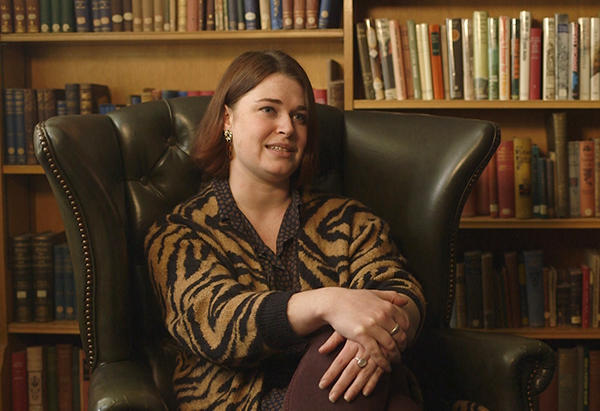A University of Worcester academic is to give a special talk on Hilary Mantel’s best-selling novel Wolf Hall, exploring its links to Worcester Cathedral and what they signify.

Dr Lucy Arnold, Lecturer in Contemporary English Literature, will also be looking at how works of historical fiction, like Hilary Mantel’s, and heritage buildings like the Cathedral, can both help us find new ways to interpret or question the past.
The free public talk, at Worcester Cathedral, on Friday, March 6, coincides with the release of Mantel’s finale to her Thomas Cromwell trilogy, The Mirror and the Light. The first two best-selling novels, Wolf Hall and Bring up the Bodies, both won the Man Booker Prize.
“The Tudor period is one that most people feel quite comfortable with, or feel that they are familiar with,” said Dr Arnold. “What I want to do in the talk is unsettle that.
“Reading historical fiction and visiting heritage sites both complexify our relationship with history, rather than simplify it. Both ask us to read history in interesting ways and if we look at them carefully we can see alternative historical narratives. Mantel in particular is a writer who is aware of that relationship and she asks us to question the conventional narrative of Henry VIII’s reign, of who Thomas Cromwell was, of who Anne Boleyn was, for example. If we approach these books and these spaces together they tell us a wealth of different stories.”
Dr Arnold, who is one of the leading Hilary Mantel specialist scholars in the country, says the Cathedral has many links to the events of Henry VIII’s reign that are depicted in Wolf Hall. This includes, most significantly, the burial place of Prince Arthur, Henry VIII’s older brother, who was to be king, but died shortly after his marriage to Catherine of Aragon.
Key figures who appear in Wolf Hall also feature in the Cathedral’s history, such as Archbishop Cranmer and Cardinal Wolsey, who both made recommendations for how the Cathedral should be run.
For Dr Arnold, the building can offer us clues about what is going on behind the historical record. She points out that the lack of grandeur at Prince Arthur’s tomb, for example, compared to other royals of the time, allows us to consider how, with his brother Henry VIII on the throne, it was advantageous that Arthur be forgotten about.
She added: “The more you research the building and interrogate the fabric of the building firstly you see how it’s available to be read in the way a book is read through its carvings and statues, but you also start to see that the narrative it’s proposing is much more complicated than we might first realise. It’s that history hiding in plain sight that is fascinating.
“In a similar way, Mantel is engaging with the gaps in the historical record - the fact that there are gaps and that what we know isn’t everything that there is to know.”
The talk, Wolf Hall in Worcester: A Local Look at Hilary Mantel’s Tudor Novels, which includes Tudor period music from lutenist Richard Cadby, is at 7pm. To book your place email rsvp@worc.ac.uk.